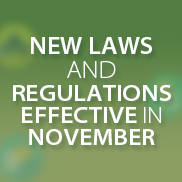What is the special administrative region system?
The special administrative regions refer to the local administrative regions established within the territory of China in accordance with the provisions of the Constitution and laws, which implement the political, economic and legal systems different from the systems implemented in the ordinary administrative regions. The prominent feature of the special administrative regions is that they enjoy high degree of autonomy and are directly under the leadership of the Central People’s Government.
Basic Law of the Special Administrative Regions
The Basic Law of the Hong Kong Special Administrative Region of the People's Republic of China
Adopted on April 4
Become effective as of July 1, 1997
The Basic Law of the Macao Special Administrative Region of the People's Republic of China
Adopted on March 31, 1993
Become effective as of December 20, 1999
The Basic Laws expressly provide the principle of safeguarding state sovereignty, unity, and territorial integrity.
What functions and powers do the Central People's Government exercise over the Hong Kong and Macao Special Administrative Regions?
The Central People's Government shall be responsible for the foreign affairs relating to the Special Administrative Regions.
The Central People's Government shall appoint the Chief Executive and the principal officials of the administrative organ of the Special Administrative Regions
The Standing Committee of the National People’s Congress may decide that the Region is in a state of emergency
The power of interpretation of the Basic Law of the Special Administrative Region shall be vested in the Standing Committee of the National People's Congress.
Autonomy of the Hong Kong and Macao Special Administrative Regions
The Special Administrative Regions enjoy legislative and judicial power, including that of final adjudication and executive power.
To practice independent taxation system and have separate customs territory.
To issue its own currency
To conduct relevant external affairs on its own, and be able to develop economic and cultural relations with foreign states and regions as well as relevant international organizations, using the name "Hong Kong, China", or "Macao, China"
To formulate policies on sports, education and culture

